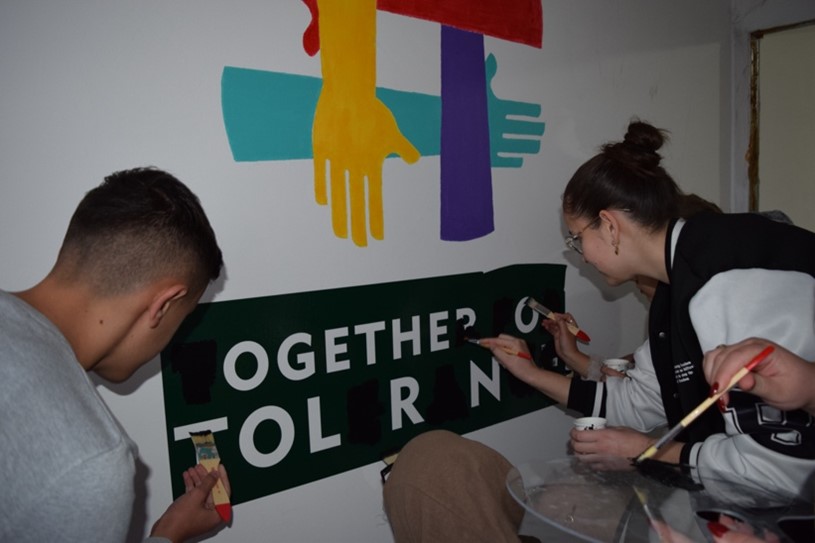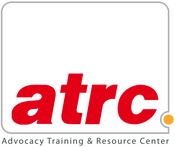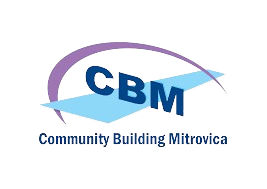Project
- Project
//OUR PROJECT
PREVENTION OF VIOLENT EXTREMISM
Context
Various forms of extremism can be identified in Kosovo: religious extremism relating to both Islamic extremism and Orthodox extremism which occur in Albanian and Serbian majority communities respectively; and ethnonationalist and political extremism which are often based on narratives and unaddressed grievances from the Yugoslav wars that divided ethnic communities. ATRC and its partners work to mitigate some of the root causes and in particular aim to increase equal access to socio-economic opportunities, support sense of purpose amongst those most vulnerable to radicalization, and foster social cohesion between different communities.
Overview
The Advocacy Training and Resource Center (ATRC) and its partners Community Building Mitrovica (CBM), Balkan Investigative Reporting Network (BIRN), and Rin’ON promote inter-ethnic and cultural social cohesion, build the capacity of state and non-state actors in their role on prevention of violent extremism (PVE), and provide direct support to returnees, their family members/caretakers and other vulnerable people in their communities including psycho-social support in the form of counselling, tutoring and educational support, as well as financial empowerment training and small grants. This program is funded by the Global Community Engagement and Resilience Fund (GCERF) and will be implemented by July 2026. It builds on two previous iterations of ‘Resilient Communities’ Programs funded by GCERF since 2017.

The program has five 4 key beneficiary groups:
1. Local and national state actors working on PVE and R&R;
2. Local Civil Society Organizations (CSOs) and other local non-state actors including youth centers;
3. Local and national media actors;
4. Returnees/former terrorist offenders and their families/caretakers.
The program has 5 key objectives:
1. Strengthen the operational and knowledge capacity of state actors working on PVE and R&R;
2. Strengthen the operational and knowledge capacity of local CSOs and other non-state actors;
3. Reduce youth vulnerability against violent extremism by increasing their sense of purpose and social cohesion;
4. Provide direct support to returnees/former terrorist offender and their families/caretakers;
5. Raise community awareness to reduce stigmatization of returnees and marginalized groups.
//IMPACT
International
Increased capacity of CSOs across the the Western Balkan region through workshops, mentoring, and one-on-one support.
National
Strengthen accountability and sustainability of Kosovo’s National Strategy and Action Plan on P/CVE and R&R through monitoring and reporting, training of central level government stakeholders, technical support, and the facilitation of coordination of state and non-state PCVE and R&R stakeholders across the national and local level.
Municipality
Facilitate a multistakeholder approach to implementing the Action Plan through technical support to local institutions to implement their activities as outlined in the Action Plan, facilitate coordination and synergy of efforts at a local level.
Community
Empower non-state actors to contribute to PVE in their communities through capacity building of CSOs and youth mechanisms; reduced stigmatization of returnees/former terrorist offenders and other marginalized groups.
Individual
Increased access to psycho-social, educational and livelihood support for returnees/former terrorist offenders and their families/caretakers as well as other marginalized groups.
//KEY ACHIEVEMENTS January 2023 - September 2023

// ATRC's Added Value
- ATRC focuses on building capacity of its beneficiaries, including CSOs, government institutions, and individuals, in order to foster their agency in turn improving sustainability of their role in P/VE and R&R
- All project design and implementation are done in close coordination with the Ministry of Internal Affairs and aligned with Kosovo’s National Strategy on PCVE and R&R.
- Activities are implemented by local partners, who are trusted in the community and have a thorough understanding of local needs and opportunities.
- ATRC and its consortium members are closely connected to several networks of P/CVE and R&R practitioners, where lessons learned, and good practices are exchanged in order to build towards better programming.
// KEY ACTIVITIES
With central & local level institutions, the ATRC Consortium:
- Monitors and reports on the implementation of Kosovo’s National Strategy on P/CVE and R&R and its action plan;
- Provides workshops, on-the-job support, and technical assistance to central and local institutions to support implementing the Strategy and Action Plan.
- Organizes quarterly coordination meetings bringing together state and non-state actors working on P/CVE and R&R.
To encourage a multi-stakeholder approach to P/CVE and R&R, the consortium also supports non-state actors, including:
- Develop individual capacity building plans for CSOs and youth groups;
- Provide workshops, individual support and mentoring to CSOs and youth groups to improve their operations as well as to improve their knowledge on P/CVE and R&R;
- Provide small grants for CSOs and youth groups to implement PVE activities.
- Facilitate their coordination with central and local level institutions.
- Organizes workshops, support and mentoring for CSOs across 22 GCERF partner countries.
Contributing to reducing youth’s susceptibility to violent extremism, the consortium:
- Organizes Civic Education Schools (CES) and other educational, cultural, and social activities to promote inter-ethnic tolerance and social cohesion
- Provide livelihood skills trainings, apprenticeships and support to young people
To support returnees/former terrorist offenders and their families/caregivers as well as other marginalized groups, the consortium”
- Provides psycho-social support to children, young people and their families
- Provides educational support to children to catch up with their peers
- Organize financial empowerment workshops and mentoring



